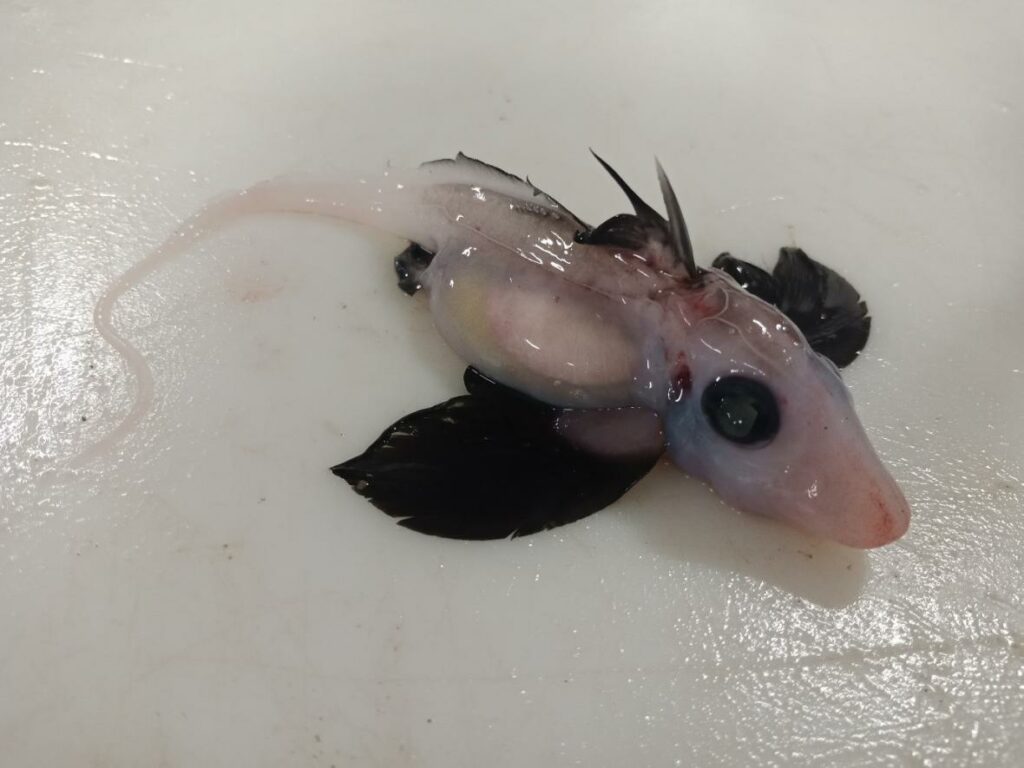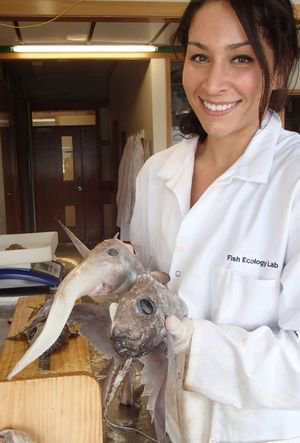
“Very rare find” of chimaera hatchling: Neonate (newly hatched) deepwater ghost shark (Hydrolagus sp.) discovered by New Zealand scientists. Photo: Brit Finucci/NIWA
15 February 2022
Scientists in New Zealand the rare discovery of a days-old “chimaera” or ghost shark during a recent survey off the east coast of the South Island.
So-called chimaeras are cartilaginous fishes distantly related to sharks and rays and classified in the order Chimaeriformes and usually found only in deep ocean habitats. Their embryos develop in egg capsules laid on the sea floor, feeding off a yolk until they are ready to hatch.
The neonate – or newly hatched – deep water shark was collected at a depth of approximately 1,200 meters (3,900 feet) on the Chatham Rise, a huge underwater plateau that is New Zealand’s most-productive fishing region.
NIWA Fisheries Scientist Dr. Brit Finucci was part of the team that made the discovery and says it is a very rare and exciting find.
“You can tell this ghost shark recently hatched because it has a full belly of egg yolk. It’s quite astonishing. Most deep-water ghost sharks are known adult specimens; neonates are infrequently reported so we know very little about them.
“From better studied chimaera species, we know that juveniles and adults can have different dietary and habitat requirements. Juveniles also look dissimilar to adults, having distinctive color patterns. Finding this ghost shark will help us better understand the biology and ecology of this mysterious group of deep-water fish.”
Dr. Finucci says further tests and genetic analysis will need to be carried out to determine the exact species.
The specimen was discovered during a recent trawl survey to estimate abundance of “hoki” or Blue Hake, an important food fish (Macruronus novaezelandiae) that is often encountered in fast-food breaded fish sandwiches.
Reference
From materials released by NIWA, National Institute of Water and Atmospheric Research Ltd, New Zealand





